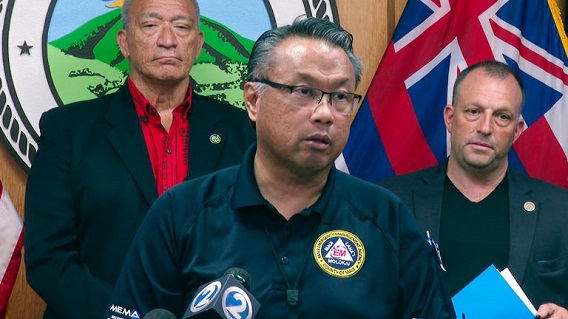Herman Andaya had come under criticism for not activating the island-wide network as fast-moving flames bore down on the city, with survivors saying they had no warning of the blaze.
Many of those who were killed are believed to have been trapped in their homes or caught in their cars as they made a desperate last-minute bid to escape.
At least 111 people are known to have died in what was the deadliest wildfire in the United States in over a century. The final toll is expected to be considerably higher.
READ ALSO: Hawaii wildfires: At least 53 dead, 1,000 missing as disaster devastates Maui
"Today Mayor Richard Bissen accepted the resignation of Maui Emergency Management Agency (MEMA) Administrator Herman Andaya," a Maui County release said.
"Citing health reasons, Andaya submitted his resignation effective immediately."
Andaya's decision not to activate the sirens is one of a number of perceived missteps by local officials before, during and after the blaze which have angered survivors, who say more lives could have been saved.
"The sirens are used primarily for tsunamis. The public is trained to seek higher ground in the event that the siren is sounded," Andaya had told a news conference on Wednesday.
"Had we sounded the siren that night, we're afraid that people would have gone (into the hills)... into the fire."
He also wondered whether anyone would have noticed if the sirens had blared their 121-decibel warning -- a level the American Academy of Audiology says is equivalent to a jet plane taking off.
"A lot of people who are indoors, air conditioning on whatever the case may be, they're not going to hear the siren," he said.
"Plus the winds were very gusty (that day)... it was very loud, so they wouldn't have heard the sirens."
Asked if he regretted the decision not to activate the system, he replied: "I do not."
AFP





